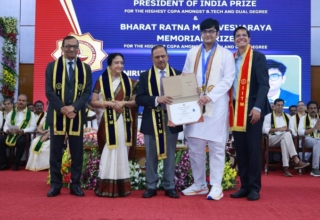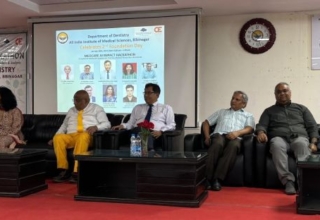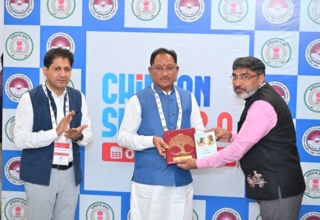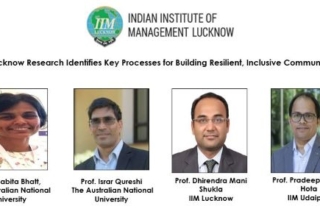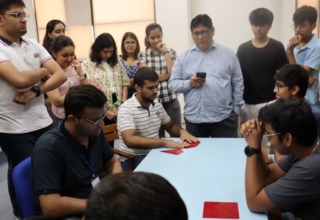
One of the major recommendations of National Knowledge Commission (esb 2005), the brain child of Dr Man Mohan Singh as Prime Minister & headed by Sam Pitroda, the ‘Telecom Czar’, was creating an over-arching single regulatory mechanism for entire higher education. Taking a cue, the then HRD minister Arjun Singh picked up eminent scientist & former UGC chairman Prof Yash Pal and a committee under him to suggest ways to rejuvenate higher education. Yash Pal too recommenced what essentially NKC had said. Country’s top academicians were more or less unanimous and supportive of the idea. Kapil Sibal as HRD minister introduced the bill in parliament but due to non-functional parliament during UPA 2, none of his bills got through. Now BJP government has given the entire exercise and idea a burial prompting a question were so many people wrong all these seven years ?
IN A CLEARLY RETROGRADE DECISION, the union cabinet on September 24, withdrew from Rajya Sabha the controversial and once ‘much appreciated’ National Commission on Higher Education & Research (NCHER) bill, 2011 that sought to form a constitutional General Council and a Collegium of Scholars by repealing the UGC Act, 1956, the AICTE Act, 1987, and the National Council for Teacher Education Act, 1993. The bill was introduced in the Rajya Sabha by the previous UPA government on December 28, 2011. In a statement issued after the September 24 cabinet meeting chaired by Prime Minister Narendra Modi, the government said the Parliamentary Standing Committee on Human Resource Development (PSC on HRD), which presented its 247th report to the Rajya Sabha on 13.12.2012 had expressed its concerns on certain provisions of the Bill. “The report also felt that centralization of powers instead of assignment of roles and functions to the State Governments were detrimental to the federal nature of Indian polity. The performance of existing regulatory bodies would accordingly be reviewed to identify problems and areas of weaknesses in them and undertake necessary corrective measures as required.”
The statement further added that in view of the suggestions and recommendations the Government on 30th July, 2014 constituted a UGC review committee (headed by Prof Hari Gautam former UGC chairman, with Prof C M Jariwal former head & dean of Law, BHU, and Prof Kapil Kapoor former VC JNU as members) recognising the need for restructuring the UGC and reshaping its educational leadership and regulatory role to address imperatives and challenges in the higher education sector in the country. The committee would evaluate the performance of the UGC on 13 points of reference including in coordinating and determining the standards of education in universities, conducting an audit of its regulatory reach; requirement of regulatory space for the UGC vis a vis other regulatory bodies in the higher education sector; assessment of regulatory space for the UGC vis a vis autonomy and accountability of higher educational institutions; analysis of the regulatory functions vis a vis the grants disbursing functions and recommending changes in the balance between the two; to introduce performance based system of release of funds and align it to the “Rashtriya Uchchatar Shiksha Abhiyan (RUSA) guidelines; measures for effectively regulating distance and online education in the country; restructuring of the entire UGC including its regional offices; new measures for enhancing student mobility and internationalisation in higher education; measures for reinvigorating the teaching environment in universities and colleges; measures for enhancing quality research and ushering in a climate of innovation in the higher education sector and; regulation of private not-for-profit entities in higher education and suggest measures to curb commercialisation.
With this development, the idea of a national over-arching regulatory mechanism for higher education first mooted by the Sam Pitroda-led National Knowledge Commission in 2007 and then in length discussed, deliberated and endorsed in detail by Prof Yash Pal Committee on Renovation & Rejuvenation higher education between February 2008 to October 2009 which became basis for NCHER bill, has come to a shocking end. While a lot of people opposed to the idea are very much relieved, others are waiting for what next? Legal expert N.R. Madhava Menon, who headed the task force that prepared the NCHER bill, said to the Telegraph that the legislation was the centrepiece of a series of laws aimed at reforming higher education “The bill was part of a package of bills that were interlinked. Now the question is what will happen to the other bills.”
According to Prof G D Sharma, former UGC Secretary and president of Society for Education & Economic Development, the trust deficit in the higher education system created by former HRD minister was majorly responsible for the mess and notion about UGC. “UGC interacts with 10,000 experts, scholars ever year. Its approach has been of a friend, philosopher and guide while respecting institutional autonomy, but because of a few cases or individual actions, the whole system has been hanging fire for the last five years. In that context, this decision is welcome,” he says.
However, the issues raised by Prof Yash Pal committee remain relevant to higher education even now. In its 94-page report the committee had said, “We would like to point out that there are no great universities in the world that do not simultaneously conduct world class programs in science, astronomy, management, languages, comparative literature, philosophy, psychology, information technology, law, political science, economics, agriculture and many other emerging disciplines. Indeed the emerging disciplines do their emerging because of infection or triggering by other fields in the same university. That is the reason that such universities are so great and our academics keep going to them. Our argument is that they would not be great if they could not accommodate people from many other disciplines. Put together, all the disciplines, breed value into each other…We would share with you the prevalent feeling in the universities that there is too much inspection, interference and delay in their dealings with State and Central Governments. To reduce most possibilities of interference this Commission should be established through a Constitutional amendment and have a Constitutional status.”
The inability of the previous government to pilot education reforms has been a big negative in the performance of the previous government. In words of columnist Gurcharan Das, “Because it let down people, it was voted out. There is a good regulator and a bad regulator; we need a good regulator whatever the structure for enabling education delivery.”
According to Sharma quoted above, the blatant interference in the functioning of regulators from the ministry of MHD has been a major reason about their perception and performance. “The ministry is just an administrative bureau say for UGC. It has no powers to overrule UGC recommendations or committees,” he says.
Quite clearly, the regulatory environment for higher education is still very ambiguous and with the withdrawal of NCHER bill, one will have to wait and watch how Modi government fixes the near seven-years of debate on regulatory issues in higher education. At least until January next early when the term of Prof Hari Gautam committee submits its report.


